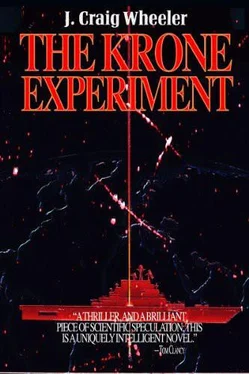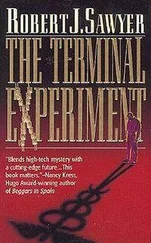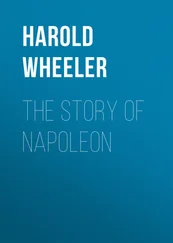“It’s not just Krone Industries,” said Baris. “I’ve been reading quarterly reports the lab submitted to Los Alamos. Krone himself is chief man on the spot, devoting himself one hundred percent to the effort.
“And not just his time,” Baris continued. “Out of curiosity, I got a list of the companies in Krone Industries and looked up their financial reports.” He hefted one of the folders he had selected. “That lab is not just running on its consulting contract with Los Alamos. Every one of these companies under Krone’s thumb has diverted significant portions of their resources to the lab. There’s an immense effort going on there. Far more than required by the government contract.”
Isaacs leaned back in his chair to digest this information and looked up at a rap on the door. Kathleen opened it and ushered in an energetic young man with close-cropped hair. In his hand he clutched a mangled envelope.
“Mark Burley, sir. From counteractivity. This is the note delivered to you half an hour ago. We processed it as quickly as we could.” He handed over the envelope.
Isaacs took it and raised a sceptical eyebrow. The envelope was crudely ripped open and both the envelope and the portion of the enclosed note, which was exposed through the ragged flap, were wrinkled.
“You opened it?”
“Yes, sir,” Burley replied with deep sincerity. “We determined it was not a letter bomb by certain physical tests, but we wanted to check the contents for contaminants. Contact poisons. If we’d had time we could’ve opened it so you’d never have noticed.” A small, proud smile came and went quickly. “As it was, we did the most thorough job we could, in the shortest time.”
“I’m sure you did.” If Burley noticed Isaacs’ facetious tone, he gave no sign.
“Thank you, Mr. Burley. I appreciate the fast work.”
“Anytime, sir. That’s our job.” The young man spun smartly on his heel and marched out. Isaacs exchanged an amused, wry smile with Baris.
“Boy Scout. Place is crawling with them,” said Baris.
Isaacs’ smile faded as he extracted and read the hand- scrawled note. It was very brief.
I know. I have to tell them. You must hurry.
Korolev
Isaacs had briefed Baris on his interchange with Korolev. He handed the piece of rough, light brown Russian paper to Baris.
“Know?” he asked. “Know what?”
“I’m afraid damn near everything we do,” Isaacs replied. He thumbed the intercom.
“Yes?”
“Kathleen, get me Martinelli.”
Isaacs put a hand on the phone in anticipation and looked at Baris.
“At the very least Korolev knows everything we did when Pat and I first went to talk to Jason because of the synopsis I sent him. There’s a very good chance he followed the same line of reasoning as Runyan. As wild an idea as a black hole was, it has a certain inevitability in hindsight. Korolev didn’t have direct access to our physical evidence from Nagasaki and Dallas, but he had his own from the Novorossiisk.”
The phone buzzed and Isaacs jerked the receiver to his ear.
“Vince? I want to know about Soviet ship deployment. Particularly along thirty-two degrees forty-seven minutes, both north and south longitude.” He listened for a moment. “Anytime in the last six weeks. I’d rather have that now and fresh stuff when you can get it.” He listened again. “That’s just the ticket. Thanks, Vince.”
He hung up and looked intently at Baris. “We have to assume Korolev also guessed we were dealing with a black hole. I sent him my memo in late June. He’s had six weeks to ponder it and move to do something about it. I also tipped off Zamyatin to watch Nagasaki. We can also assume they have at least a rough idea what went on there. If they have penetrated the Japanese with any efficiency, they probably have the full report. Korolev could pick up quickly on the parallels between the holes drilled in Nagasaki, and those in the Novorossiisk. For that matter, they may know about Dallas.
“In any case,” Isaacs continued, “we lost three weeks sitting on our duffs waiting for Dallas to happen, three more before we got back to Jason, and Gantt got the real dope. That’s six weeks when Korolev could have been pushing for some monitoring program in Russia. The trajectory doesn’t pass through Russia, so they’d have to mobilize somewhere else. It makes most sense to me to use their Navy. We would have moved faster if ours hadn’t been so recalcitrant.
“I don’t know what their response time would be, but I certainly got the idea from Zamyatin that Korolev has clout at high levels in the Kremlin. If they put properly instrumented ships on the trajectory, they could learn everything we have.”
“I see what you mean,” Baris said. “If Korolev suspected a black hole, he’d have a gravimeter put on board to measure the mass.”
“Seems obvious enough,” Isaacs agreed. “Gantt considered a shipboard experiment, but elected to put his apparatus on dry land to make it as stable as possible. We know now it wouldn’t have made much difference. They’d have to be a bit careful, but an inertially mounted device, isolated from the worst pitching of the ship, would do the job.
“Accurate timing would be easy,” Isaacs continued. “With sonar monitors and some regular data acquisition they would know how long the thing hovered above sea level and could figure out the altitude to which it rose, just as we did.”
“So they’d look along the trajectory at that altitude, just as we did,” said Baris following the logic.
“And they would find this lab,” Isaacs slapped his palm on the stack of folders in front of them, “just as we did. I think that must be what Korolev’s note means. He’s found Krone’s lab, and, having raised a ruckus, he has to report his findings to the boys at the top.”
The phone rang and Isaacs jerked it up.
“Yes? Right.”
He reached for a pad and scribbled some numbers.
“Yes. Yes. Got that.” He listened, then spoke again. “How far is that? Yes, damn it, no question. They’re onto it. Sure, when they come in, but this is just what we needed. Thanks for the quick work. Great. Right.”
He hung up and relayed the message from Martinelli to Baris.
“There are five small flotillas in the Pacific, three along thirty-two degrees forty-seven minutes north, two south. Each has a research vessel, a tender, and a destroyer. They’re spaced 1170 miles apart, sailing steadily westward, about 190 miles per day.”
“So they’re tracking it,” Baris summarized.
“They’re tracking it,” Isaacs confirmed.
“How long?” Baris inquired.
“Seven to ten days. Some got on station earlier.”
“That’s plenty of time to collect a good timing record,” said Baris.
“I think there’s no doubt now that Korolev has followed the same path that Runyan led us on,” Isaacs said. “We’ve got to get to that lab and find out what’s going on.”
“And damn quickly,” Baris said. “If you’ve got this right and Korolev reports to the top brass in the Kremlin that a black hole was made and released at a secret US government lab, oh, boy.” Baris leaned back in his chair. “Can you imagine what the chest-medal crowd will do with that? We’ll be right back to square one when they thought we’d zapped their carrier. Damned if they weren’t right!”
Isaacs stood up and moved to the window. He clasped his hands behind his back and stared out over the trees, rocking up on his toes. He could feel the mid-August heat, which smothered the tree tops.
“We’ve got a powder keg already up there in orbit,” Isaacs mused. “I don’t know whether we can possibly move quickly enough to neutralize this situation. We’ve got to hope we can find an explanation that will satisfy the Soviets that this wasn’t an intentional, government sanctioned plan.”
Читать дальше











